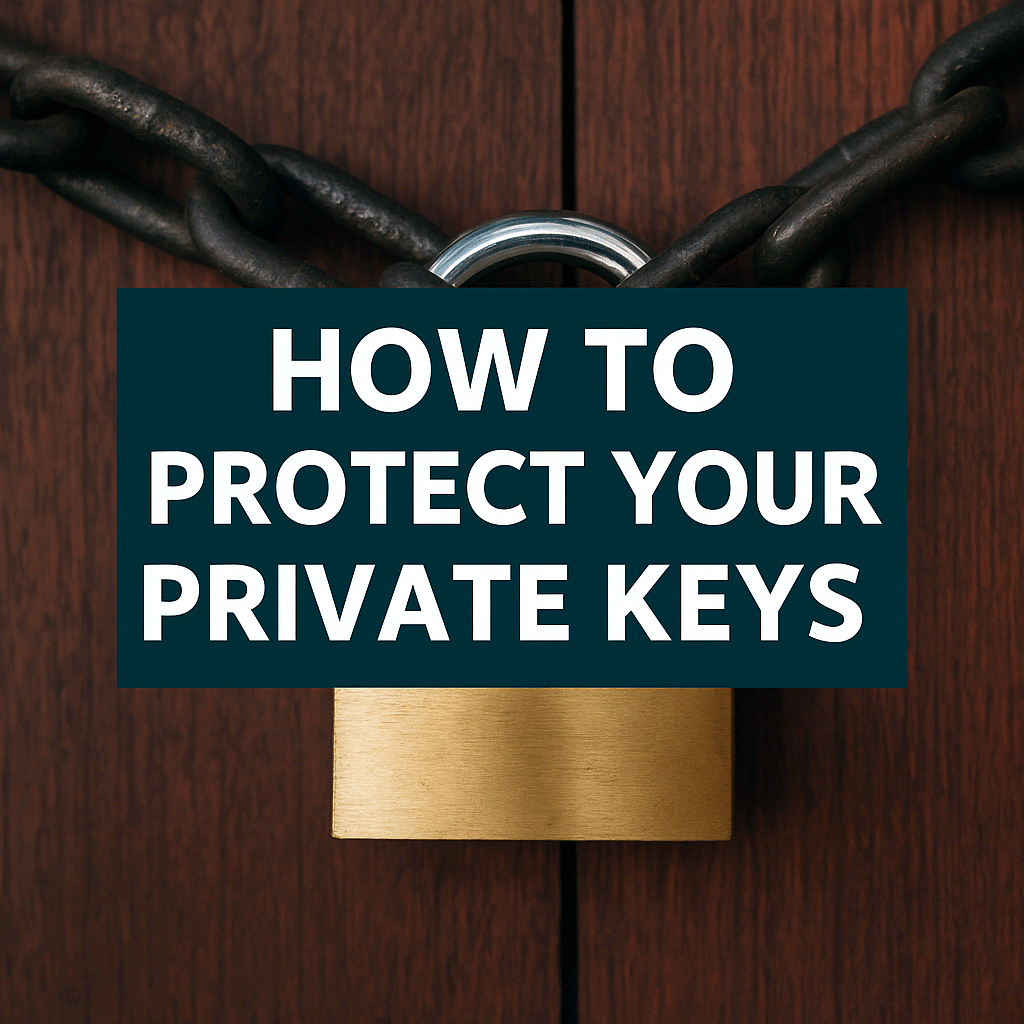In cryptocurrency, your private keys are the gateway to your assets. Without them, you can’t access your digital funds; if they fall into the wrong hands, your coins could be gone forever. Understanding how to protect your private keys is crucial for anyone involved in crypto. This post explores effective strategies to secure your private keys and keep your digital investments safe.
What Are Private Keys?
Private keys are cryptographic strings granting you ownership and access to cryptocurrency wallets. Think of them as a digital signature. Anyone with your private key can initiate transactions from your wallet.
Why Private Key Security Matters
Unlike traditional banking systems, crypto transactions are irreversible. If your private keys are compromised, no bank or authority can reverse a fraudulent transaction. This makes private key protection one of the most critical aspects of cryptocurrency management.
Best Practices for Protecting Your Private Keys
1. Use Hardware Wallets
Hardware wallets such as Ledger Nano S, Ledger Nano X, and Trezor offer offline storage for your private keys, shielding them from malware and phishing attacks.
2. Enable Multi-Factor Authentication (MFA)
Secure your accounts by enabling MFA, which adds a layer of security when accessing wallets or exchanges.
3. Create Secure Backups
Back up your private keys and recovery phrases offline, preferably on paper (paper wallet) or encrypted USB drives, and store them in multiple secure locations.
4. Use Cold Storage
Cold storage involves keeping your private keys in a system that is not connected to the internet. This method drastically reduces exposure to online threats.
5. Avoid Cloud Storage
Never store your private keys on cloud services like Google Drive or Dropbox. These platforms can be compromised more easily than offline storage.
6. Keep Software Up to Date
Always use the latest wallets and security software versions to protect against vulnerabilities.
7. Be Aware of Phishing Attacks
Double-check URLs and avoid clicking suspicious links or emails that may try to trick you into revealing your private keys.
Internal and External Resources
For further reading, check out:
And don’t miss our internal guide: Top 10 Cryptocurrency Security Tips
FAQs
FAQs
Q: Can I recover my crypto if I lose my private key?
A: No, you cannot access your wallet without a backup of your private key or recovery phrase.
Q: Is a paper wallet still safe?
A: Yes, but only if stored securely and protected from physical damage or theft.
Q: Are mobile wallets safe?
A: They can be safe with strong passwords, 2FA, and careful usage but are more vulnerable than hardware wallets.
Q: Should I share my private keys with anyone?
A: Not. Keep your private keys confidential at all times.

 Bitcoin
Bitcoin  Ethereum
Ethereum  Tether
Tether  XRP
XRP  USDC
USDC  Solana
Solana  TRON
TRON  Lido Staked Ether
Lido Staked Ether  Figure Heloc
Figure Heloc